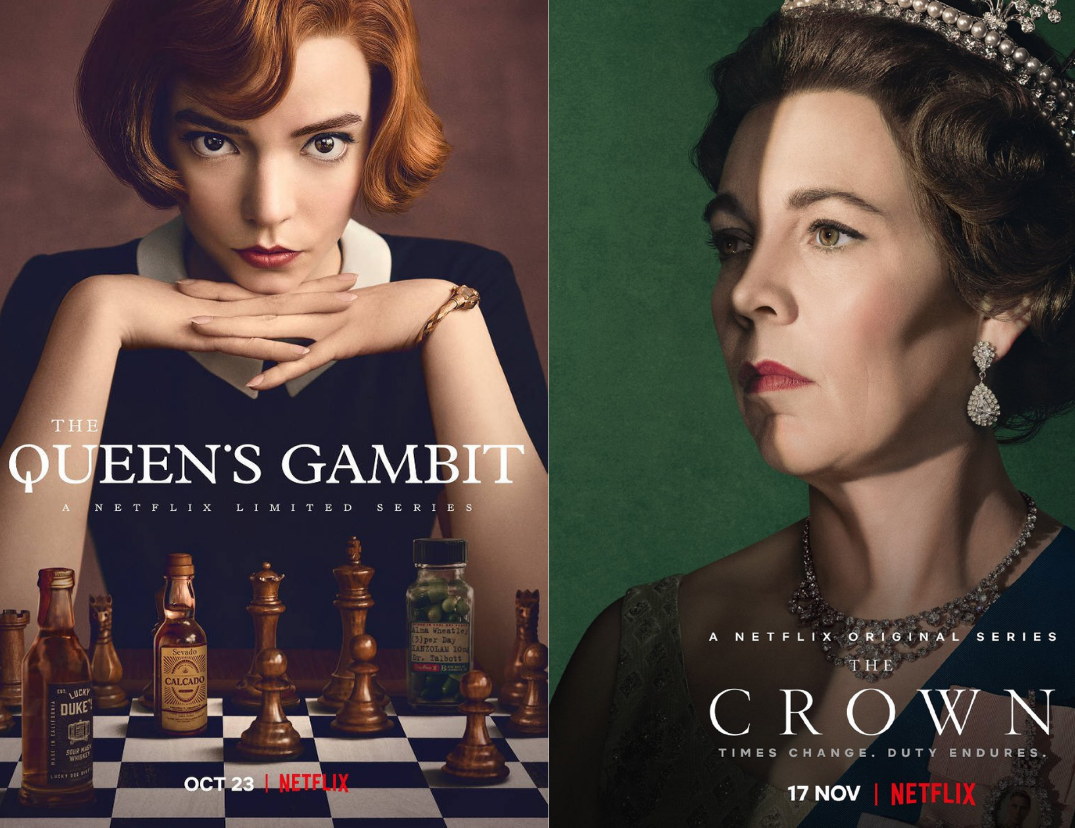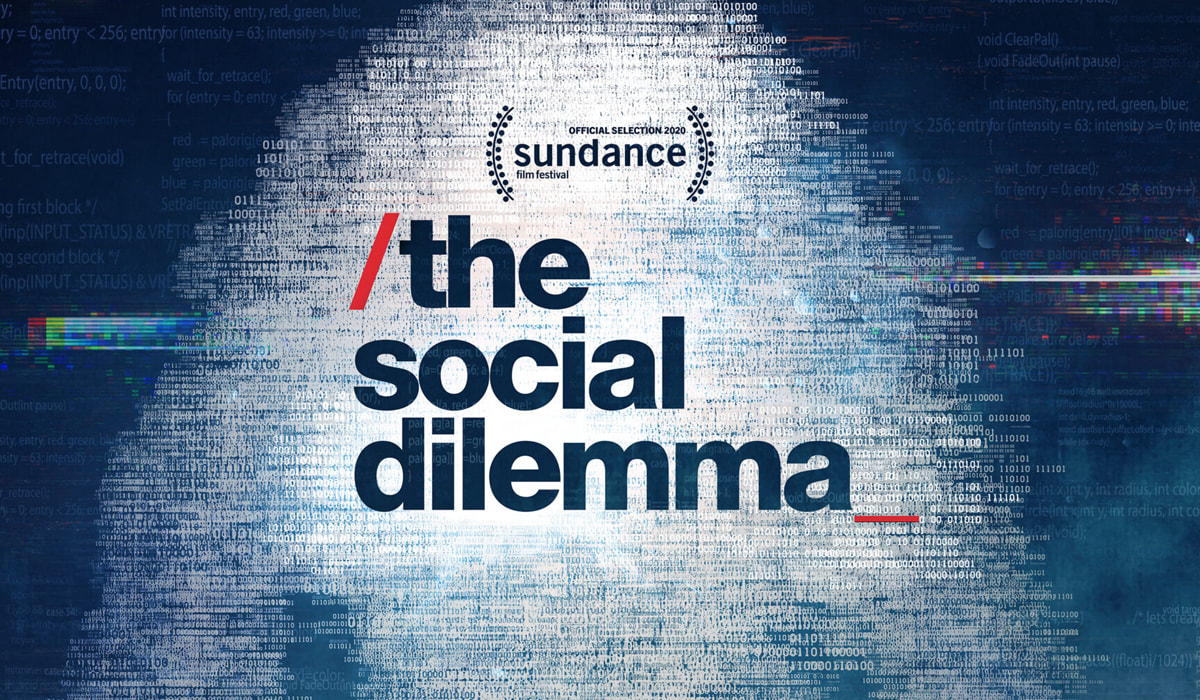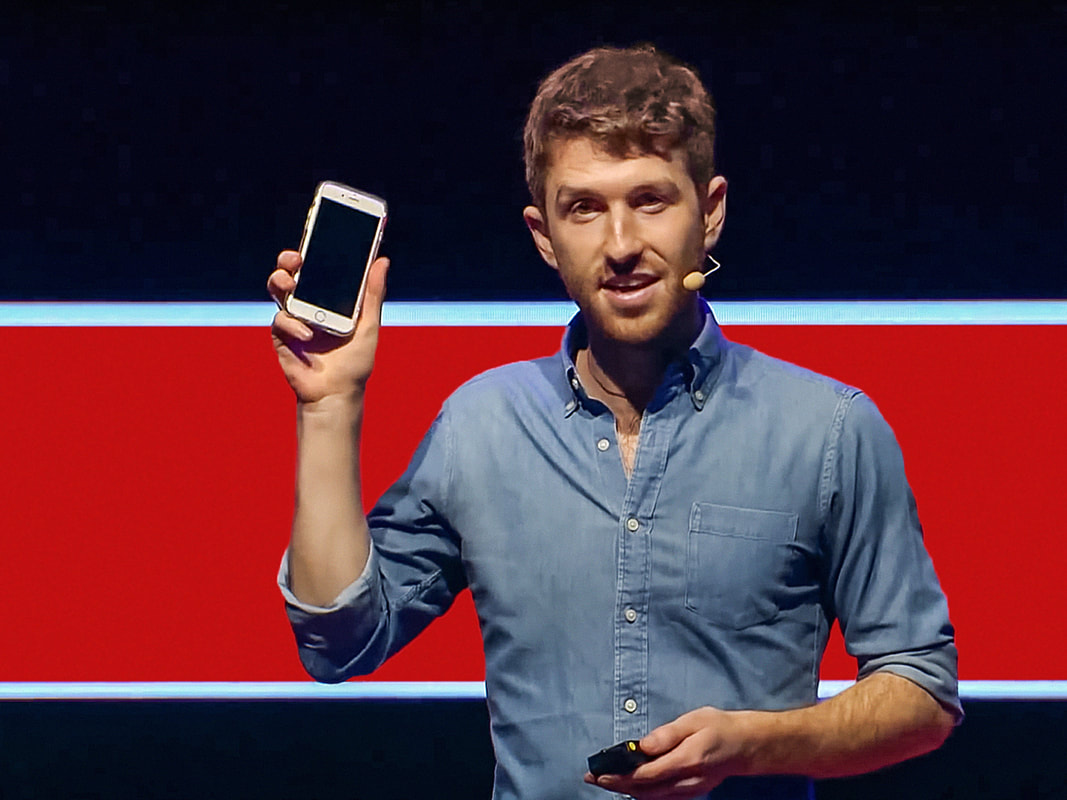|
It is astonishing that this pandemic will likely be a catalyst for creating a more just and equitable world while simultaneously causing mass death, heartbreak, and further fracture to the Divided States of America. How can it produce so much good and evil? At a time when our collective thinking is categorized into black-or-white responses—about the pandemic, politics, social media, the state of the world—the best chance of us finding our way is to recognize and hold multiple, often competing, perspectives. It's how we cultivate empathy and understanding. One way to go about it: watch more content like the Netflix hit shows “The Queen’s Gambit” and “The Crown.”
Admittedly, I did not watch these shows to try and better myself. I hit "play" because they have brilliant writing, gorgeous cinematography, and top-notch acting. Add in high-stakes drama and women with serious public power...I'm in. What most captivated me, however, are the female leads who are both likable and unlikeable, rare pearls in Hollywood entertainment. We root for these women while often wondering if they are good people. Enjoying aloof female leads takes work In “The Queen’s Gambit,” lead character Beth Harmon is an orphaned chess prodigy who is not only brilliant at the game, but a focused, ambitious champion busting gender roles. An obvious heroine, right? She is also, however, quirky as hell in a way that is not endearing. Beth is not plucky or a fun-loving goofball that audiences are usually served up. If anything, she is aloof, unpleasant and even bratty. There is no rounding-the-corner moment where Beth transforms into a warm softy either. What makes us more forgiving of her behavior perhaps is knowing she was raised in an orphanage and then a highly dysfunctional home once adopted. Can we truly fault her? She is who she is, and the audience has to hold all of her sides, respecting her even while being repelled by her coldness. I was notably late to “The Crown.” But now that I’m half-way through season four, I can’t get enough of the Queen Mum, showcased as bright and determined and doing her best to learn an almost impossible role starting at such a young age. (I think of my derelict choices in my 20s and how absurd it would have been for me to assess the well-being of my country.) Unlike Beth from "The Queen's Gambit," she never chose her role of power; she had to find peace with it. The Queen is also viewed as cold, out of touch, and sometimes cruel (I am thinking, in particular, of how emotionally withholding she is with her children, especially Prince Charles, while being self-aware enough to know it). It is practically criminal in our culture to be non-maternal but The Queen had her own (royal) culture with an entirely different set of values. Our feelings for her change from scene to scene; and it surprising how much we can respect someone so infuriating. How shows like these change us "The Queen's Gambit" and "The Crown" remind us that most people are not good or bad, superheroes or villains. We are all susceptible to inflicting pain on ourselves and others when we feel wounded. We are capable of being our most generous when we feel nourished emotionally. Content like this inspires us to dig deeper and appreciate that most of us are truly doing our best while making complicated decisions in real time and when we are exhausted. When we watch these leads from the comfort of our couches, we know we could do better; we also know we probably wouldn't. The beauty of these shows is that they make this medicine of complexity go down with heaping spoons of high-drama competitions, complex script writing, and sparkly dresses. I hope the enormous popularity of both shows prove yet again that there is a huge appetite for complicated female leads. I also hope the "water cooler" discussions we engage in about them help open our minds, expose us to new perspectives, and make us hit pause before so quickly labeling others “unlikeable” or “likeable.” Both can be true, are true. If we can explore what conditions contribute to the way people think and behave, we can improve the way we interact with one another and more selectively choose our battles. Escapist superhero movies and joyful rom-coms certainly have their entertainment place, but shows like "The Crown" and "The Queen's Gambit" can forever change us if we let them.
1 Comment
This weekend I watched the documentary “The Social Dilemma” on Netflix, which explores how manipulative social media has become. If you are thinking, “I already know all about it,” I promise you don’t. I’m not talking about issues like “Instagram makes my child (or me) feel lonely and insecure," which is indeed happening, but rather that social media is actually destabilizing countries, like ours, in the name of corporate greed. If social media was meant to connect us, the opposite has happened. I assumed I knew how Machiavellian social media can be because I founded and led a nonprofit, MEDIAGIRLS, that focused on how apps like Instagram and Snapchat prey on young people’s insecurities and keep them addicted. I’ve talked with thousands of teens about how disconnected social media leaves them feeling. Still, I didn’t know the half of it. Hats off to the tech experts who speak the truth in this 94-minute documentary, yanking open the curtain to reveal how social media works. (Yes, some experts likely spoke up to help wipe clean their bad karma from engineering these systems in the first place.) Did you know that when you Google search a topic like “What is climate change?” you get different answers depending on where you live in our country? In liberal states, your responses include scientific research. In conservative states, you get links to articles insisting climate change is a “hoax.” Tristan Harris, who spent three years as a Google Design Ethicist, states in the film that there is simply no longer one truth. It’s not like we’re living in different realities in this country. We are. So, what now? Toward the end of the documentary, the experts suggest our best hope for fixing this mess is to have politicians create and enforce better regulations while hoping the next generation of tech experts will challenge current models. While this would be wonderful, we can’t sit around waiting for that to happen. We need to take control into our own hands, and here are three actions we can take immediately.
1. Devise a new plan for yourself. We know clicking mindlessly on links feeds the beast by allowing tech companies to gather ever-increasing personal data on our habits. While one option is to quit social media altogether—which I’m seeing more peers do—another option is to make more intentional choices. This weekend, I deleted all the news notifications and alerts on my phone that had been installed automatically. I thought about which social media apps I enjoy and deleted the rest. I check once or twice a day the apps I enjoy and shut off notifications so that I’m not lured in more. 2. Delay handing Smartphones to our kids. The tech experts featured in this doc do not allow their kids to use social media. They make a point of saying that none of the Silicon Valley execs do because they know how addictive it is. Why not at least delay the age in which kids get social media? I have told audiences of parents for years that middle school is the single worst time to give kids access. My own 16-year-old confessed that she and her friends lamented the existence of Smartphones since they got them. They can feel the harmful effects but can’t break the habit. This is hardly a surprise since the most brilliant minds in the country created the system in which the feel-good hormone dopamine courses through our brain upon hearing notifications. We should delay giving kids social media at least until high school. 3. Use social media for empowerment and inspiration. It is important to point out that what is missing from “The Social Dilemma” are the positive aspects of social media. The apps can indeed bring out the best in us: waking us up to racism in new ways; mobilizing us to march and protest; impacting our attitudes on sexual harassment because of the #metoo movement; and giving young people a powerful voice to become leaders for change. Social media is a tool that is not inherently good or bad. We can collectively use it for social good and stop allowing the tool to use us. I like what Tristan Harris is aspiring to: "The ultimate freedom is a free mind, and we need technology that's on our team to help us live, feel, think and act freely." AI is only going to get faster at learning our habits and better at manipulating us to turn on each other. So, let's yank ourselves out of the social media haze, be far more intentional about how we use our apps, and try to use this powerful tool in ways that connect rather than divide us. |
THE COVEMichelle Cove is a journalist, filmmaker, author, and founder of the nonprofit MEDIAGIRLS. She uses storytelling and media to encourage, challenge, empower and inspire others and is seeking a job that allows her to put these skills to use; check out her resume if you may know the right fit. Michelle's favorite stories involve resilience, a blend of soft humility and sharp humor, and a belief that the universe is conspiring to help us all grow. Find her at LinkedIn. Also find her on
Archives
February 2021
Categories
All
|




 RSS Feed
RSS Feed
